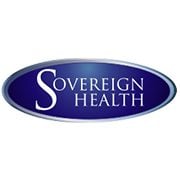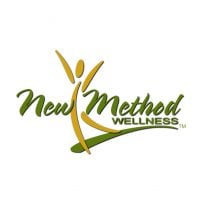First Light Recovery
Drug Rehab Center in San Clemente, California
- Opioid Addiction
- Mental Health
- Dual Diagnosis
- Drug Addiction
- Alcoholism
First Light Recovery in San Clemente, California, is an addiction treatment facility offering comprehensive services in inpatient, outpatient, and sober living housing, with a collaborative care approach led by experienced professionals utilizing evidence-based practices and therapies tailored to individual needs.
About This California Facility
First Light Recovery is nestled in the serene city of San Clemente, California, specializing in treating adults battling co-occurring disorders through its residential mental health, drug, and alcohol rehab programs. With a capacity of just 6 beds, this facility stands out for its intimate setting, personalized treatment plans, and round-the-clock therapeutic supervision. Distinguished by its commitment to addressing a broad spectrum of concerns including addiction, mental illness, and self-harm, First Light Recovery offers a compassionate and secure environment for recovery.
Accredited by CARF, First Light Recovery emphasizes individual and group therapies, family involvement, trauma treatment, and evidence-based interventions, all tailored to the client's specific needs. They accept most insurance plans, enhancing accessibility for those in need. The personalized care and structured step-down process ensure a continuum of care from inpatient to outpatient and maintenance aftercare.
- Personalized Treatment Plans: Each client receives a customized treatment plan to address their unique recovery needs.
- Comprehensive Continuum of Care: From intensive residential care to outpatient and aftercare services, First Light Recovery supports clients throughout their recovery journey.
- Specialized in Treating Co-occurring Disorders: Expertise in addressing both mental health issues and substance abuse simultaneously, including drugs, alcohol, and opioid addiction.
First Light Recovery effectively treats various addictions and mental health issues, employing a mix of individual, group, and family therapy. Trauma treatment and evidence-based methods are central to their care levels, from residential to outpatient and aftercare, ensuring a holistic and sustained recovery process.
Genders
Ages
Modality
Additional
Accreditations

CARF
The Commission on Accreditation of Rehabilitation Facilities (CARF) is a non-profit organization that specifically accredits rehab organizations. Founded in 1966, CARF's, mission is to help service providers like rehab facilities maintain high standards of care.
Conditions and Issues Treated
Opioid addiction treatment should be done in a medically supervised drug rehab. Opioid addiction treatment will include detoxification and drug rehab counseling to help both the user and their loved ones learn how to live a successful sober lifestyle. Methadone, buprenorphine, and naltrexone are three medications that can help treat opioid addiction. Individual drug rehab counseling sessions can be helpful to discuss any questions or concerns with the drug treatment program.
Levels of Care Offered at First Light Recovery
This center offers a variety of custom treatment tailored to individual recovery. Currently available are Inpatient, with additional therapies available as listed below.
Inpatient treatment is an option that provides addicts with a supportive environment in which they can stop using. This type of intensive care and supervision is appropriate for those who were unable to quit on their own or need more structure than they could get from outpatient treatment, such as the addict most in need of this level of care.
The goal of inpatient rehab is for the addict to stay focused on sobriety and remain free of mood altering substances. Inpatient treatment programs usually offer the following: detox, therapy groups, one-on-one counseling, medication management and aftercare planning.
Therapies & Programs
Individual therapy is a critical component of addiction recovery. It allows the patients to go deep into their core issues and discover how to handle those problems better. Therapy can be conducted in individual sessions as well as group settings. In individual therapy for addiction, the patient meets with their therapist one-on-one to focus on the underlying issues. This allows patients to open up and discuss personal topics they may not feel comfortable discussing in a group setting. This type of therapy can help develop solutions specific to each patient, which helps speed up the recovery process.
Family therapy is a crucial part of drug treatment and getting sober. It is one of the most effective ways to help addicts stay on the path to long-term sobriety. When a drug addict decides that they want to try and get sober, it takes the support of every person they love to succeed. It can be incredibly difficult for loved ones to watch an addict go through the pain and suffering of withdrawal, but by being there with them and supporting them, they can help to make sure that the addiction never returns.
One of the most important parts of family therapy is the relapse prevention plan. During treatment, therapists and doctors will often sit down with the addict and their family to develop a plan in case the addict ever feels like they want to use again. This plan should involve steps the addict and family can take together to prevent them from relapsing in the future. An addict’s family can play a vital part in helping them to avoid relapse because they can spot the warning signs and help them get back on track before it becomes too much of a problem.
Group therapy helps prevent addicts from feeling isolated or unique in their situation by offering a sense of comfort and fellowship. It also creates a forum for addicts to build their support systems and learn from each other. The group therapy sessions at First Light Recovery occur in a group setting rather than one-on-one to create a safer, controlled environment where addicts feel comfortable.
Trauma therapy helps people dealing with addiction by allowing them to confront the traumas of their past and move past them. It is important to note that trauma therapy should not be confused with PTSD (post-traumatic stress disorder) Rather, it is used to treat the effects of trauma, which are often at the root of addiction.
Dialectical Behavior Therapy was developed in the 1980s to treat chronically suicidal individuals. It is a cognitive-behavioral therapy that combines strategies derived from Zen Buddhism, such as mindfulness training. DBT has been adapted for use with other types of psychiatric problems, including substance abuse and personality disorders. DBT aims to help patients change their thinking and behavior, instead of relying on medication.
Cognitive Behavioral Therapy (CBT) is a common therapeutic approach to help drug addicts. It teaches addicts new ways of thinking and behaving so that they can avoid relapse. There are several forms of CBT used in drug rehabilitation centers.
Cognitive Restructuring helps addicts identify faulty, negative thinking so that they can work together with the therapist to find healthier ways of thinking, resulting in better decision-making.
Cognitive Behavioral Therapy for Addiction uses the principles of CBT to help treat addiction. It focuses on specific aspects of each person’s thinking, feeling, physiology, and behavior. It aims to identify specific problems in these areas and create a personalized treatment strategy.
The best drug treatment centers offer various services to help addicts learn how to live without drugs. Since addiction is a chronic physical and mental illness, addicts need to learn as many life skills as possible to help them stay clean and sober.
Many drug treatment centers like First Light Recovery offer life skills activities as part of their addiction recovery programs. Examples include cooking classes, employment training, resume writing seminars, parenting classes, and computer training. When addicts have various life skills to lean on, they’re better equipped to put their addiction behind them for good.
The primary goal of life skills activities at drug treatment centers like First Light Recovery is to help addicts recover from addiction and learn how to live a useful, productive life. Life skills activities help addicts find employment, take care of their families, and give back to the community. After learning about these various life skills, addicts are better prepared to return to society and lead happy healthy lives.
Payment Options Accepted
For specific insurance or payment methods please contact us.
Is your insurance accepted?
Ask an expert, call (888) 674-0062
Additional Details
Specifics, location, and helpful extra information.
San Clemente, California 92672 Phone Number(800) 870-2013 Meta DetailsUpdated April 15, 2024
Staff Verified
Patient Reviews
There are no reviews yet. Be the first one to write one.
San Clemente, California Addiction Information
More than 3 million of California's citizens are addicted to illegal drugs. Almost 800,000 people use hard drugs, almost 5 million use marijuana, and another 2.1 million abuse alcohol every year. Other substance abuse issues such as binge drinking and teen drug use are also common. Many illegal drugs such as cocaine, heroin, methamphetamine, and marijuana are smuggled into the state from Mexico.
In 2013, there were 377 admissions to drug and alcohol treatment facilities in San Clemente. Most of those addicted to drugs are between the ages of 18 and 29. Drug-related ER visits have increased by 50% over the past five years. The most commonly abused drugs include heroin, marijuana, cocaine, and methamphetamine. No matter what level of care you need, treatment options are available to help you heal.
Treatment in Nearby Cities
- Orange, CA (28.8 mi.)
- San Marcos, CA (32.3 mi.)
- Fairfield, CA (415.9 mi.)
- Livermore, CA (376.0 mi.)
- Porterville, CA (199.4 mi.)
Centers near First Light Recovery
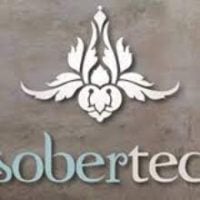
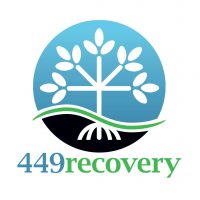
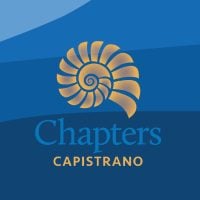

The facility name, logo and brand are the property and registered trademarks of First Light Recovery, and are being used for identification and informational purposes only. Use of these names, logos and brands shall not imply endorsement. RehabNow.org is not affiliated with or sponsored by First Light Recovery.


